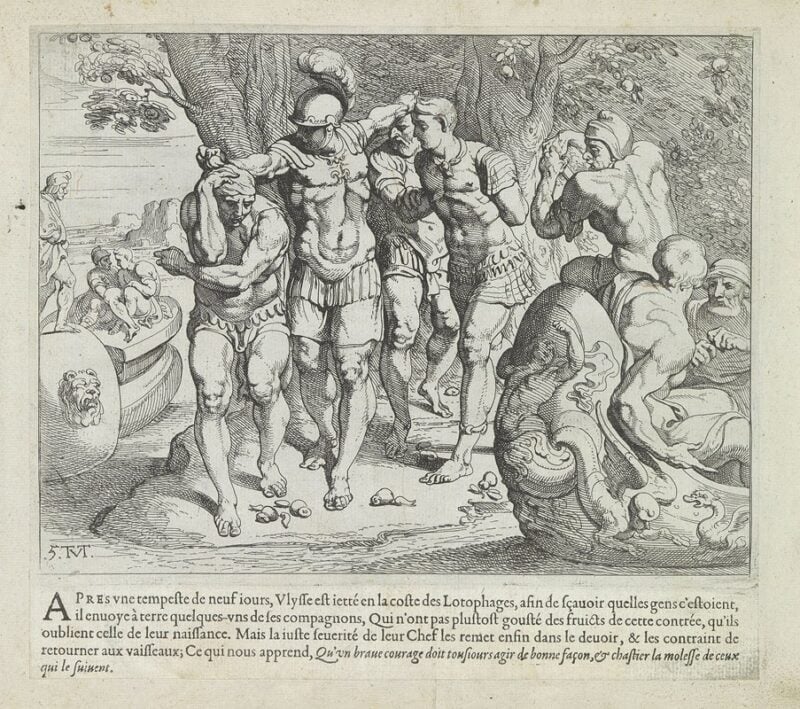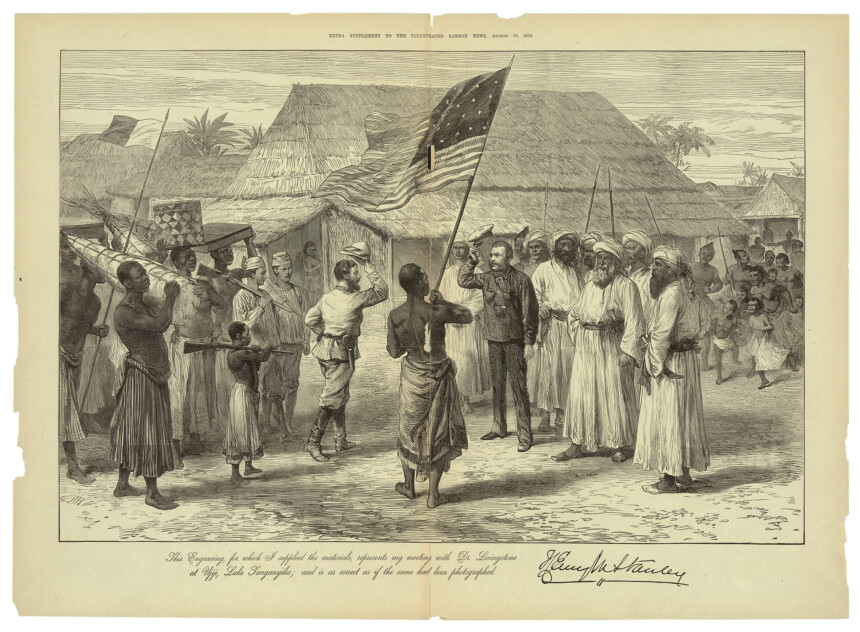“Decolonization” is the new badge for right-thinking professors and teachers. The word reveals more about those who use it than about their imaginary oppressors. Out of the abundance of the heart, the mouth speaks. The great haters in our midst have the word “hate” perpetually on their lips. So do the decolonizers.
What that term means is that the Western world must no more dwell upon the works of the Western past, and to the extent those works are treated, it must be done with ingratitude and disparagement. Let me illustrate.
Dan-el Padilla Peralta, professor of classics at Princeton, confesses that he feels uncomfortable with the “whiteness” of his field. He wants to take Greece and Rome down from their places of honor. Peralta is black, and emigrated to the United States from the Dominican Republic as a child. He does not appear to share the gratitude and the sense of liberty that W.E.B. Du Bois felt when he studied the classics: “I sit with Shakespeare and he winces not…I summon Aristotle and Aurelius and what soul I will, and they come all graciously with no scorn nor condescension.”

above: Dan-el Padilla Peralta, Associate Professor of Classics and Latino Studies, Rockefeller College, Princeton University (Princeton University)
DuBois, of course, was no conservative; he was a Stalinist in the days of Khrushchev. But that is part of the point. The classical world is too vast and varied for any simple application to contemporary issues. It reveals man in his glory and shame.
For when has any study of those societies been mere adulation? Scholars of the ancient world have always tried to deal honestly with the good and the evil in their societies, praising their triumphs and attempting to learn from their failures. Julius Caesar has always been an ambiguous figure: you can almost divide the West into partisans of Caesar (such as Dante), partisans of Brutus (such as Michelangelo), and those who tried to see clearly the virtues and the sins of both (such as Shakespeare).
Pericles, Themistocles, Cato, Tiberius Gracchus, Cicero, Demosthenes—who among them has ever glorified a hero without reservation? Or, more to the point, what political or social group in our time, let us say the modern liberal university, has been as sensitive to its peculiar faults as Thucydides was critical of Athens after the death of Pericles, or as ruthlessly bitter as Tacitus, writing in sorrow for a republic long gone?
Meanwhile, a school principal in Massachusetts has boasted of removing the Odyssey from the curriculum. That, too, is cast as “decolonization.” It is beyond ridiculous. For many decades, we have been tossing classical education into the ditch. Forget about studying Latin or Greek. Very few college students will have read Milton. Almost none will have read Tennyson. Most will not have heard of this Victorian poet; I know this from long experience. The cathedral was long ago burnt to cinders. What is left to do but smash the charred statues that survived the fire?
Those who command our schools and colleges behave like colonial powers in the land they occupy (with one important reservation, which I will save for the end). They exercise power for their own ends, ostensibly for the good of their subjects, who mostly suffer their rule with grudging timorousness. How do they colonize us? Let me count the ways.

The colonial power separates the children from their parents, to make them reject their traditional ways of life, and to have them think as the occupiers do.
When the Canadian government established schools in their far-flung and sparsely populated northern territories, they took aboriginal children from their parents and their ancient and seminomadic tribes, to house them sometimes a thousand miles away, and to teach them to read and write, and to be something just short of full Canadian citizens. Nowadays those so-called residential schools are the objects of abomination, partly for the abuse which some of the children suffered, but more for the underlying aim, which, according to their critics, was to undermine or destroy native cultures.
I hardly need to draw the parallel. Our teachers are proud to separate children from parents, intellectually, spiritually, and politically. But the parent of a minor child should be to the teacher as an employer to a tutor, delegating to him some measure of authority on condition that he do some designated work with a clear and mutually agreeable aim. Imagine a tutor posting a guard at the door of his study, lest the father enter and hear what the child is reading!
Parents have little say in what goes on at the schools where most of them are compelled to send their children. Distance is decisive. Not the vast stretches of wasteland between Yellowknife and the delta of the Mackenzie; rather we are describing the distance resulting from gigantism and bureaucracy.
The school is an anonymous hulk, too big for direct, personal confrontation. Its sole consultative board will be stocked with teachers and their relatives and friends. Responsibility is shielded by layers of administration. Textbooks are chosen by committee, and the choices mostly reveal contempt for the traditional. And you will be cowed into playing along, or not making trouble, because the occupiers can make or break your child’s chances for entering one of the more lucrative centers of the Higher Swindle.

The colonial powers use the institution for their own political purposes.
It is no surprise to learn that the British established schools in India, where the natives would learn to speak English, play cricket, and be dutiful citizens of the British commonwealth and monarchy. Rudyard Kipling’s cheerful babu, Hurree Chunder Mookerjee, aspires to be admitted into the Royal Academy for his ethnological research, when he is not acting as a spy for the British.
Cecil Rhodes, imperialist par excellence, believed in the superiority of the English people, and used his immense business in diamonds to extend British authority and British settlements throughout Africa. Charles Dickens cast a cold eye on such faraway ventures: in Bleak House, the philanthropic Mrs. Jellyby, ignoring her own husband and children, can see no nearer than the banks of the Niger River, where she hopes to send missionaries and artisans to train the natives to “turn piano-forte legs and establish an export trade” in coffee.
My point is not to brand Rhodes as a racist or condemn unjustly everything done by the British Empire. Rather I wish to note a structure of control. The colonialist as such is not the immigrant who moves to another part of the world to become a part of its culture. Such a person is like someone who studies Greek to learn about the Greeks, or Sanskrit to learn about the ancient Hindus.
Nor is the colonialist the true missionary of Christ, who wants to save souls while holding on to all that is best in a native way of life. Matteo Ricci spent many years learning Mandarin Chinese and mandarin ways, to reveal to the Chinese the Tao that is Christ. The colonialist subordinates all questions to the political. The Irish must be pacified—why? So that Spain will not gain a foothold across the Irish Sea. Sir Walter Raleigh must be financed—why? So that Britain will not trail other nations in wresting commodities from the New World.
Children in public schools must be taught the novels of Toni Morrison, not the poems of Homer—why? So that they may enjoy works of art as art, and wander in the blessed fields of imagination? Hardly. Homer has been read and loved in all kinds of societies for the last 2,500 years. It is absurd to suppose that a saga about a Greek warrior battling with gods, one-eyed monsters, and treacherous seas can have a peculiar and narrow political end. The problem is not that Homer is narrow. Toni Morrison is narrow. Homer is too vast to be adapted to clear and immediate political use.

The colonial powers aim to destroy native tradition, especially if it is religiously based.
When Europeans first penetrated the Congo, they found a land of cannibalism, savage tribal feuds, no farms, no roads, no writing, and the life of man as Hobbes says, “solitary, poor, nasty, brutish, and short.” Charles James Napier, one of the noblest of the British soldier-governors of India, friendly to Indians among the troops and a sharp critic of British arrogance, was once confronted by Hindus who insisted upon suttee: burning the widow on the funeral pyre of her husband.
“Be it so,” said Napier. “This burning of widows is your custom; prepare the funeral pile. But my nation has also a custom. When men burn women alive we hang them, and confiscate all their property. My carpenters shall therefore erect gibbets on which to hang all concerned when the widow is consumed. Let us all act according to national customs.”
Napier was dealing with life and death. But no one dies by reading the Sermon on the Mount. The parable of the Prodigal Son is not a lesson in hatred. The widow with her mite impoverishes no one. Solomon does not carve babies in half.
The true missionary welcomes what is best in the folkways of the people: think of the mild anticipation of Christianity in Longfellow’s Song of Hiawatha. The anti-missionary casts those folkways in the worst light. In the warped judgment of the colonialists in our schools, the Bible and almost everything based upon it are to be abominated, like eating a captured enemy or roasting a widow alive. The only tradition to be respected is to own no tradition, so that each generation can march into the future, whither our wise political leaders have already advanced.
Gandhi—whatever one may think of his person, his methods, and his goals—saw the old Hindu religion as a tool of leverage against the British occupiers. It is more than that, of course, but it could be that. The colonialists of our time see that Christian faith can stand against their political designs. Therefore, it must be suppressed. To that end, other religions (Islam!) may be used temporarily as convenient tools to root out Christianity.

The colonialist works to keep the natives permanently dependent, and weak.
In an earlier age, sympathetic Americans looked upon the reservations set aside for Indian tribes as a sad necessity, not as something that should be celebrated. No such conscience-stricken ambivalence troubles the colonialists who run our schools.
Mortimer Adler left school at age 14; he became a persuasive advocate of studying the classics. Chuck Jones, the most inventive of American animators, left school at age 15 to pursue the arts. Dorothea Dix established her own school when she was 17. Thomas Edison, who was immensely and restlessly inventive, could not sit still in school for more than a few weeks as a boy. Examples may be multiplied. The most creative people among us have found the routine and blandness of our schools to be stifling. This is especially true of boys, who by nature are more restless than girls.
But children are not permitted to range on their own. Their parents have been fooled into helplessness. “If your child does not graduate from this place,” so goes the warning, “he will amount to nothing.” If that is true, it is only because the schools are turnpike-keepers, controlling access to important goods. They command the only ford over the river, and unless you pay them their tribute and let them have their way, you will not cross; but this is not because they give you something good in exchange that only they can provide. They hurt you, sometimes on purpose.

Think of boys who hear, without ceasing, that their sex is responsible for all the bad things in the world, and that even though men have laid every road, built every bridge, dug every well and mine and canal, and put their hands to difficult and dangerous work as hunters, fishermen, lumberjacks, construction workers, soldiers, and so on, though they have toiled like oxen beside the oxen they tamed to pull the plow, though they have graced the world with masterworks from the frescoes of Michelangelo to the symphonies of Mozart, they may not take any proper pride in it. For they did not permit their wives to hang in the air from scaffolding to work a half-ton stone into place, they did not permit their daughters to set sail to harpoon whales and bring back the precious oil; so their crimes are crimes, and their achievements are crimes. Think of the constant contempt and ingratitude and imagine how a mere child can bear it without becoming disheartened, sullen, and weak.
Which is all to the benefit of the colonial power.

The principal justification of the colonialist is that he brings to the natives a superior way of life: he brings them gifts that they could not otherwise enjoy. It is not good to be a cannibal. It may be tolerable to be an aboriginal in the Australian outback, but to be an Australian now is to be in touch with billions of people all over the world and to have within reach the glories of human thought, invention, and art. Without the British Raj, Ramanujan would never have had the means to become a prodigy of mathematical insight and achievement.
Wherever the ancient Romans went, they brought the orderliness of Roman law, they built roads that outlasted the centuries, they brought clean water into cities by aqueducts, they built towns and cities, complete with large public buildings, baths wherever they found hot springs, and walls to keep out invaders. What have we gotten from our colonizers?
They have reduced music to noise, art to scribbles, polish to obscenity, and poetry to shouting. Our college students are more ignorant of English poetry, by far, than were the relatively unschooled farmers of Iowa a hundred years ago. The old traditions gave us Milton and Keats, Pope and Tennyson, titans of literary accomplishment, whose range was as broad as human thought and feeling; the colonizers call them deservedly dead men, and give us the ephemeral and political instead, with no bearing beyond the fashions and hysterias of our time and place.
The old traditions gave us Bach and Beethoven and the grandeur of Western music sacred and secular, and the sweetness and pathos of folk music from the Volga to the Mississippi. The colonizers give us the angry obscenities of rap, and the laryngeal constipation of American Idol. If you read accounts of American painters and sculptors bursting upon the world in the late 19th century, you will learn of art that is noble in conception and skilled in execution—the public memorials of Augustus Saint-Gaudens, the portraits of John Singer Sargent, and the seascapes of Winslow Homer. It was a vital and far-ranging tradition. Our colonizers have no interest in recovering any of this.
But I have left the worst for last. In one area of life after another, the colonizers have slandered or smothered a noble moral vision, substituting for this what is petty and vicious. For the one-flesh union of man and woman in marriage, we have celebrations of the casual, the selfish, and the perverse; nothing for boys but scorn, nothing for girls but vanity and ambition, and not one public policy to promote and protect the natural family. Instead of courage, instead of forthrightness in speech, instead of affirming truth and not sentiments, they teach cowardice: hiding behind hurt feelings, evading the issue, shouting with the mob, and wailing like spoiled children should anyone dare to laugh at them or suggest that they are doing wrong.
Foul of mouth, slovenly of dress, timorous in conflict, petulant in defeat, pompous in victory, credulous yet unbelieving, precise in novel etiquettes yet otherwise rude and unsociable, rich in lavatories and poor in children, with empty playing fields, rotting bandstands, schools resembling prisons and colleges polymorphous brothels, they have left not one social institution healthy; yet they out-Rhodes Rhodes in their lust for power, and, reeling back into the beast, they make the walls of their temples thick with the congealed blood of thousands and thousands of slaughtered innocents.
That is what we get from our colonial rulers.
Image Credit:
above: Stanley Meets Livingstone , wood engraving print, signed for authenticity by Henry M. Stanley, 1872 (Library of Congress)

Leave a Reply